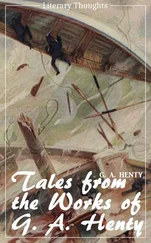“There’s something in that,” Arnold agreed. “And then, of course, there is the fact that he wanted a carriage to himself, and tipped the guard pretty heavily to secure it. By the way, is there any local gossip which might suggest a reason for suicide?”
“None that I know of. Sir Wilfred was very generally respected, and was supposed to be a man of very considerable means. Here we are at the mortuary.”
They went in, and Arnold inspected the face of the dead man. He appeared to be between sixty and seventy, clean-shaven, and with thin grey hair. The features were strong and well-chiselled, and even in death there was a firmness of expression which gave the key to Sir Wilfred’s character. A man of strong will and intellectual power, Arnold felt sure. Would such a man commit suicide? Not in a fit of sudden depression, certainly. But if a motive existed, which after due and prolonged consideration seemed to him adequate, he would do so without fear or hesitation.
Arnold turned from the body to the clothes, which he examined carefully. There was nothing remarkable about them, being just what a man in Sir Wilfred’s position might be expected to wear. On a table beside the clothes lay the contents of the pockets. There were as follows: a bunch of keys, with a silver chain and loop; a small quantity of change, silver and copper; a gold hunter watch with a fine gold chain, and a spectacle case containing a pair of tortoiseshell-rimmed spectacles.
“He was wearing his glasses when he was found,” said Marden, as Arnold came to this item. “I found the case in his pocket, and put them into it for safety.”
Arnold nodded, and continued his inventory. A gold cigar-case, engraved with the initials W.S., and containing three cigars of an expensive brand. A gold match-box, containing half a dozen Swan vestas. And finally a leather wallet, with gold mounted corners.
Arnold opened this and ran through its contents. These were not numerous. A few visiting cards, with the address of Mavis Court. A book of postage stamps, of which two or three had been torn out. Three five-pound notes, seven one-pound notes, and two ten-shilling notes.
“Well, if he didn’t kill himself, the motive for shooting him wasn’t robbery,” said Arnold. “But there’s one thing you missed in turning out his pockets, Mr. Marden.”
“What’s that?” inquired Marden suspiciously.
“Why, his railway ticket. Unless you’ve given it up to the company?”
Marden shook his head. “I haven’t seen it,” he replied.
Arnold searched the pockets for himself. They were empty, and there was no sign of a ticket. “That’s queer,” he said. “Perhaps in that attaché-case of his. I expect one of these keys will open it.”
His guess was correct, and the attaché-case was soon opened. It contained nothing but a few printed papers, reports and statements of accounts, all headed “Wigland and Bunthorne, Ltd., 5 Shrubb Court, London, E.C.3.” Glancing at them, Arnold noticed that Sir Wilfred Saxonby, Bart., J.P., was described as the chairman of the firm. Another name caught his eye. Richard K. Saxonby, Esq., Managing Director. “Is that Sir Wilfred’s son?” he asked.
“I believe so,” Marden replied. “I couldn’t be sure.”
Arnold put the papers back in the case, and locked it again. “There’s no ticket there,” he said. “Now, what can he have done with it? It isn’t by any chance in his hat, is it?”
Search of the hat, a nearly new bowler, failed to reveal the ticket, and Arnold frowned. “He must have had a ticket,” he said. “They wouldn’t have let him past the barrier at Cannon Street without one. It’s not here, and he can’t have dropped it in the compartment, or we should have found it just now. What’s become of it?”
Marden shrugged his shoulders. Clearly he thought that this man from Scotland Yard was attaching undue importance to trifles. Sir Wilfred had shot himself, any fool could see that. What on earth did his ticket matter? He was beyond prosecution for travelling without one. But Marden did not give expression to these thoughts. “He may have dropped it on the platform at Cannon Street,” he replied. “It hardly matters, does it?”
“Details like that have a way of mattering,” Arnold replied. “However, we can leave the ticket for the moment. I’d like a word with Dr. Frant, before we go out to Mavis Court.”
Marden led him to the doctor’s house. They found him at home, and quite ready to give information. “Self-inflicted?” he said, in reply to Arnold’s question. “Yes, certainly the wound could have been self-inflicted. You found the pistol, did you? H’m. I rather thought you would. A small automatic? Just so, just so. The pistol must have been held horizontally, pointing at the region of the heart, with the muzzle not more than a few inches away. Death, I imagine, was practically instantaneous.”
“If Sir Wilfred had held the pistol, would he not have retained it in his grasp after death?” Arnold asked.
“Not necessarily,” Dr. Frant replied. “The effect of the bullet entering the heart would very likely be muscular reaction, causing the pistol to be thrown, as it were, from the hand.”
“We found the pistol just under the opposite seat of the compartment,” said Arnold.
“Very much what might be expected. A very slight twitch of the muscles would be sufficient to project the pistol that distance.”
Arnold and Marden took leave of the doctor and went to lunch. The meal over, they took a car and drove to Mavis Court.
Mavis Court was a beautiful Georgian house, surrounded by an extensive park. Arnold was immediately conscious of an atmosphere of wealth and luxury, which was intensified when they were shown into the drawing-room. And here, in a very few moments, Miss Olivia Saxonby joined them.
Arnold put her down at about forty, and immediately noticed the likeness between her and the dead man. She had the same clear-cut features, the same firmness of mouth and chin. But, whereas these had seemed suitable to Sir Wilfred, the effect in his niece was to make her expression hard and unsympathetic. “Please sit down,” she said coldly. “You have come about the death of my uncle, I suppose?”
“I regret that is the purpose of our visit,” Arnold replied. “You are Sir Wilfred’s niece, I understand. He has a son, has he not?”
“Yes, Dick, who is in America just now. I sent him a cable last night, and have a reply that he is returning immediately.”
“Had Sir Wilfred any other children?”
“Yes, a daughter, Irene. She married Major Wardour some years ago; they, too, are abroad, motoring in the south of France. I have wired to their last address, and so far have had no reply.”
“Was Sir Wilfred in the habit of going abroad frequently?”
“Not of recent years. He went to Belgium for a week or two last autumn, in connection with his business. Since then he has not spent a night away from here.”
“Was he in the habit of going up to London regularly?”
“He went up every Thursday, as a regular thing. Most weeks he went up on some other day as well, usually Tuesday or Wednesday. This week, for instance, he went up on Tuesday.”
“Did he always go and return by the same train?”
“He always went up by the 9.50, and nearly always came back by the 6.7. Three or four times a year, however, he would dine in London, and then he came down by the 10.37.”
“You have lived with your uncle for some time, Miss Saxonby?”
It seemed to Arnold that her expression hardened as she replied. “Ten years next June. Ever since Aunt Mary died. Uncle Wilfred wanted some member of the family to come and live with him, and, since Dick and Irene were both married, I was the next choice.”
Читать дальше












